The latest consumer sentiment survey from Westpac showed that confidence was stuck at recessionary levels as we headed into 2024:
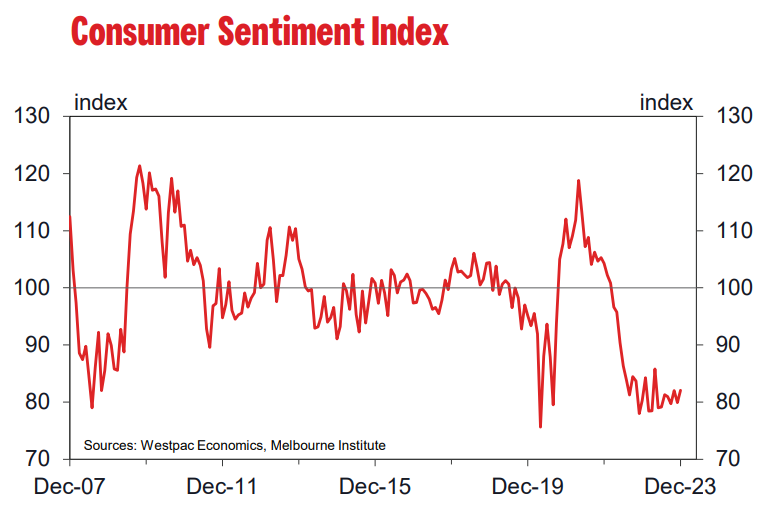
Westpac senior economist, Matthew Hassan, noted that Australian consumers had “seen incomes come under extraordinary pressure from a surge in the cost of living, sharply higher interest rates and a rising tax take”.
Further, “while ending on a slightly improved note, 2023 still marks the second worst calendar year for sentiment on records going back to 1974”, Hassan said.
Tellingly, an analysis of consumer sentiment surveys around the world by Alex Joiner at IFM Investors shows that “consumer sentiment has bounced materially from 2022 lows in most advanced economies…. apart from Australia”:
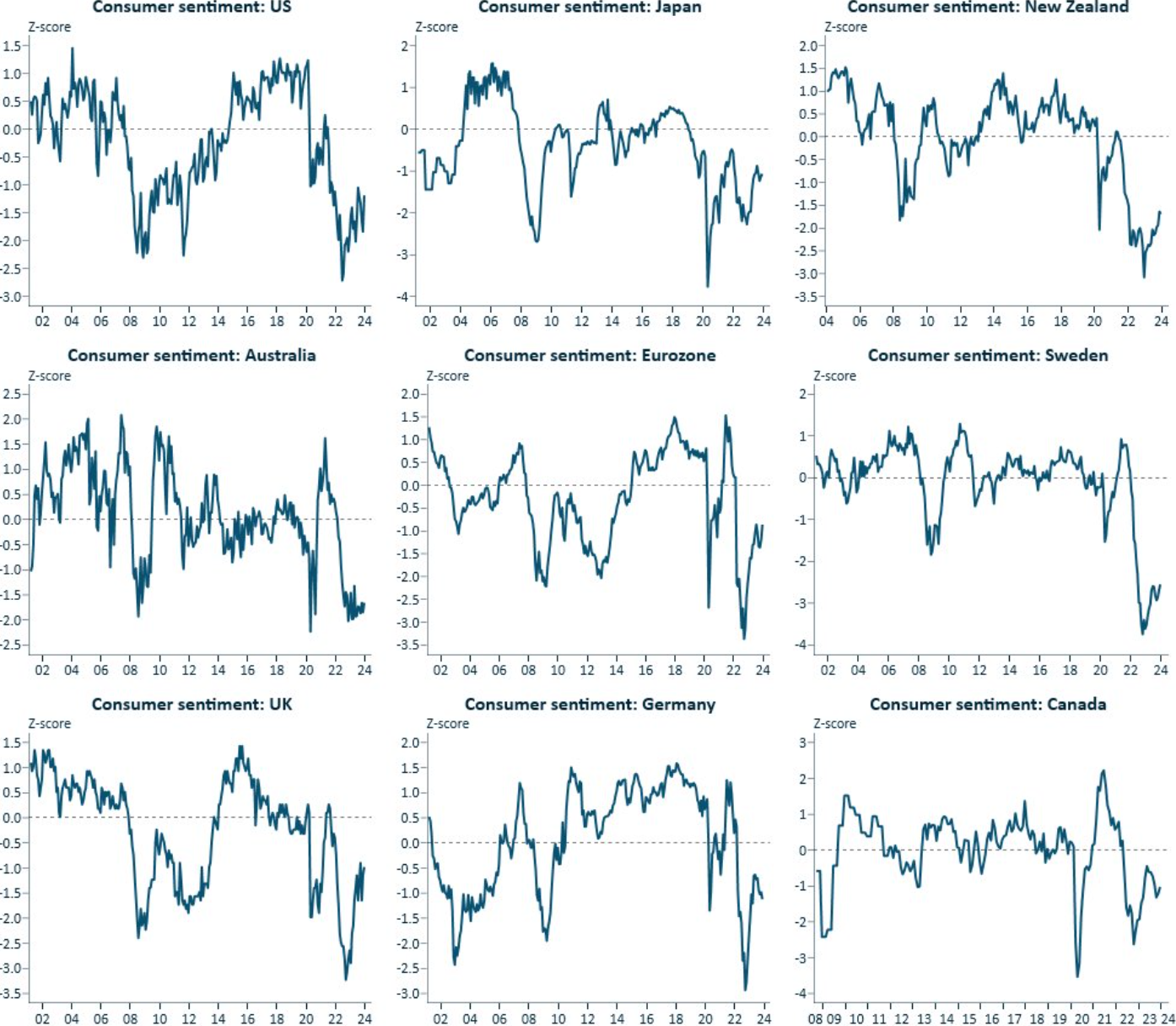
Source: Alex Joiner
Sadly, I cannot see consumer sentiment rebounding materially in Australia over the foreseeable future, given unemployment is certain to rise.
The way it stands, the 2020s is shaping up as an even worse decade for Australians than the 2010s “lost decade”.
This is exactly what MB predicted three years ago.
The main reason behind the collapse in consumer sentiment over 2023 is encapsulated by the below chart:
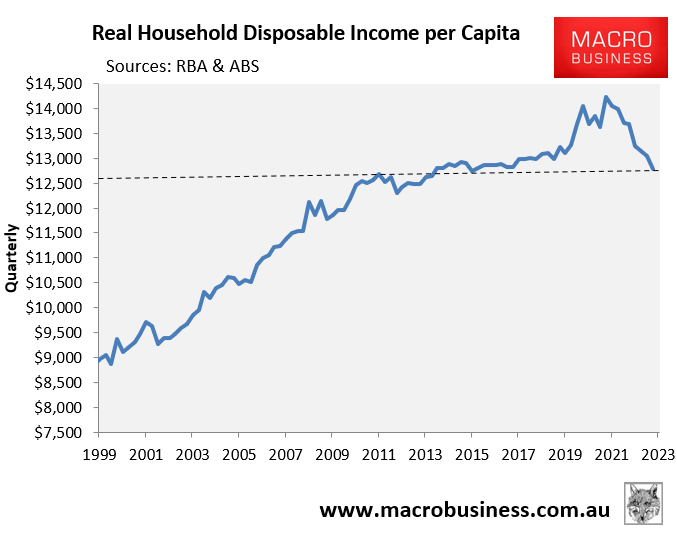
Real per capita household disposable income fell to around 2011 levels in Q3 2023, effectively wiping out 12 years of moderate income gains.
As reported by The AFR’s Michael Read, the collapse in Australia’s household income was also the worst in the world, according to OECD data to Q2 2023:
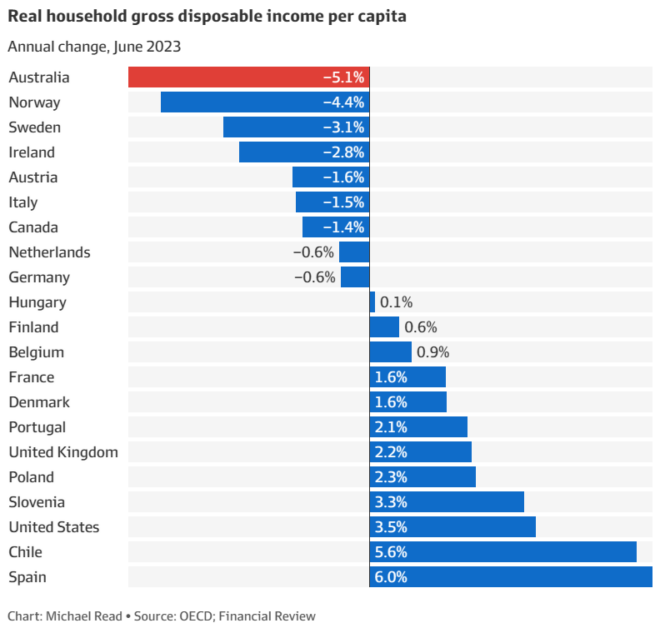
Despite Australia’s official unemployment rate remaining low at 3.9%, the jobs market has also weakened materially, with the number of applicants per job ad soaring well above pre-pandemic levels:
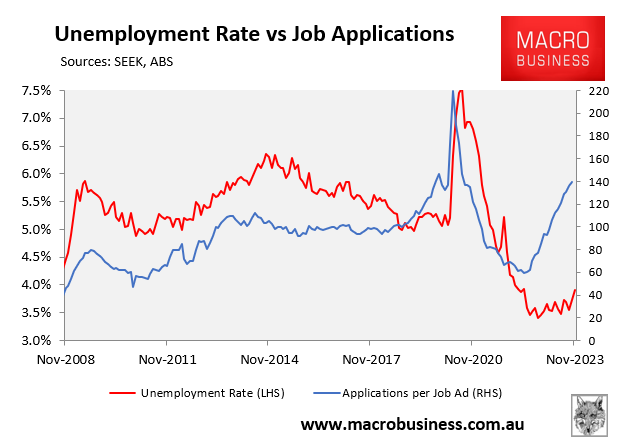
This is macroeconomic mismanagement by the Albanese Government writ large in consumer attitudes.
*Article Correction: We wrongly stated that “confidence was stuck at recessionary levels as we headed into 2023”, rather than 2024. This error has been corrected.

